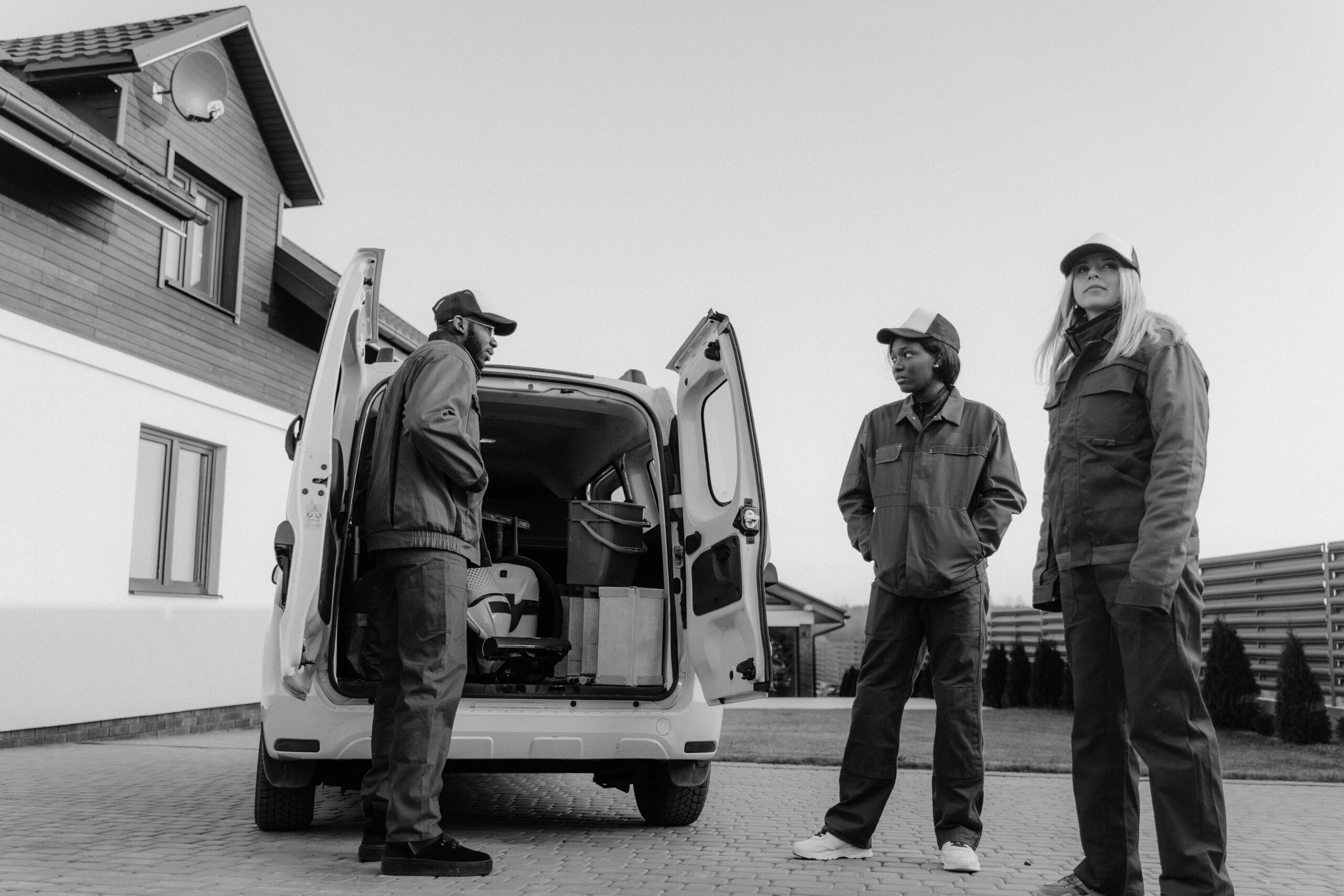By Noah B. Rosenfarb, 3rd Generation CPA, www.Wealthrive.com
The late afternoon sun cast long shadows across the parking lot where Ron and Andy sat in their work truck, coated in drywall dust and bone-tired after another grueling weekend job. The small office building they’d just re-plumbed stood quiet behind them, a testament to the relentless work ethic that had built their plumbing empire. At 59, the two men were staring down the final stretch of their careers, with a pact to retire at 60 and finally savor the fruits of their $12 million-a-year business. But today, the air in the truck felt heavier than usual.

“We’re getting too old for this,” Andy muttered, wiping sweat from his brow.
Ron nodded, his weathered face etched with deeper lines than Andy remembered. He’d been quieter lately, distracted, and Andy had sensed something was wrong but hadn’t pushed. Now, Ron turned to him, his voice low. “I’ve got something to tell you.”
Andy braced himself. Forty years of friendship—since their college days, where they bonded over beers and big dreams instead of diplomas—had made them as close as brothers. They’d built their plumbing company from a shaky startup into a South Florida juggernaut, tackling the toughest jobs, often on weekends like this when offices sat empty. Whatever Ron was about to say, it wasn’t going to be light.
“I have cancer,” Ron said.
The words hit Andy like a sledgehammer. “What kind?” he managed to ask, his throat tight.
“Prostate,” Ron replied, forcing a grin. “One plumbing problem we can’t fix.”
Andy’s mind raced. Prostate cancer—he didn’t know much, just that it was common and the treatments could be brutal. Ron explained his options: surgery, radioactive seeds, freezing the tumor, or just watching it closely. “Doc says it’s unlikely I’ll die from it,” Ron added, “but my wife and Jared are pretty freaked out.” Jared was Ron’s son, a steady hand in the business since overcoming a pain pill addiction years ago.

The news shook Andy, but it also brought a forgotten piece of their past into sharp focus. “Whatever happened to that buy-sell agreement?” Ron asked, referring to a document a slick, pinstriped lawyer had drawn up a decade ago. It was meant to outline what would happen to the business if one of them died or became disabled. They’d never signed it, Andy realized, and it was probably gathering dust in a file somewhere.
“We need to dig it up,” Ron said. “And figure out how to hand this thing over to the boys.”
The “boys” were Jared and David, the company’s ambitious project manager. Ron planned to gift his half of the business to Jared upon retirement, a reward for his hard work and loyalty. Andy, who had no kids, had been mulling over selling his share to David, a go-getter whose hustle had fueled the company’s recent growth. David was hungry for a piece of the pie, but with little savings, he couldn’t afford to buy in outright. Worse, both men worried that if they didn’t cut David in soon, he might jump ship—and with retirement looming, the business might not survive without him.
The partners knew they needed help. They turned to a team of advisors who quickly spotted the flaws in their dusty, unsigned buy-sell agreement. Back when it was drafted, they’d purchased insurance to fund it, but the company’s value had skyrocketed since then. The insurance payout would cover barely 10% of a partner’s share, nowhere near the 50% it was meant to secure.
“You need a solid, well-executed buy-sell agreement,” advisor Noah explained. “It has to be fair, with provisions for trigger events like death or disability, proper funding, and a valuation process that reflects the company’s true worth. That’s the backbone of any business continuity plan.”

The advisors also crafted a plan to transition the business to Jared and David. Since David couldn’t afford Andy’s half upfront, they proposed a stock sale program: Andy would sell 10% of his shares to David annually over ten years, with David financing the payments through company dividends or distributions. To ease Ron and Andy’s concerns about handing over their life’s work to two untested thirty-somethings, the advisors added a “wait and see” clause. It included incentives to keep Jared and David performing and gave the original owners the right to buy back shares at fair market value if the younger duo faltered.
“There’s another perk,” advisor Noah added. “If a big contractor—say, from Ohio—wants to buy into the South Florida market and offers a crazy sum for the company, you can sell, even if Jared and David object. Andy, you’ll retain control until David pays every dime. And Ron, your contract with Jared has an escape clause, so he’s got to stay sharp.”
Ron and Andy left the meeting relieved, even chuckling. “Those guys are sharp,” Ron said, his grin returning. “Wish they worked on prostates, too.”
As they climbed back into their truck, the future felt a little less daunting. Ron’s diagnosis was a stark reminder that life could throw curveballs, but with a solid plan, they could protect their legacy and pass the pipe to the next generation. For two plumbers who’d spent decades fixing leaks and building dreams, that was a fitting way to close the valve on their careers.
Download our free Wealthrive Fire Drills HERE.





